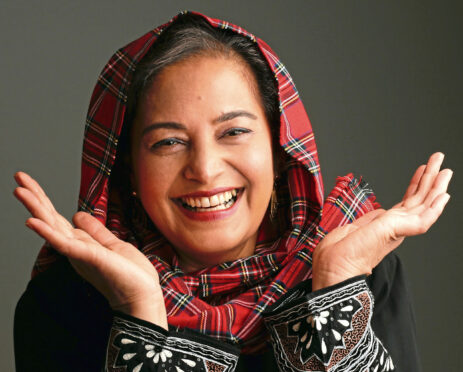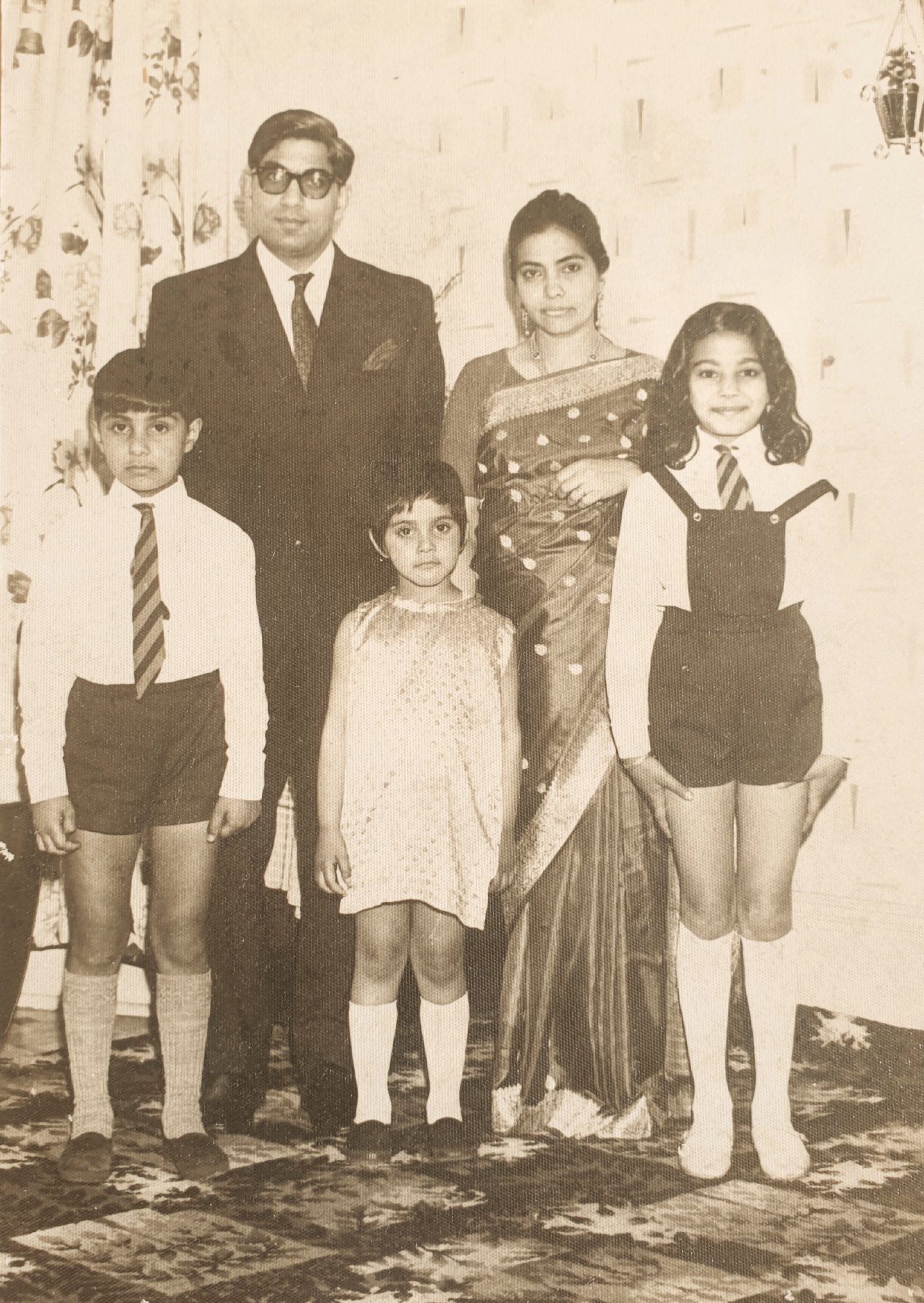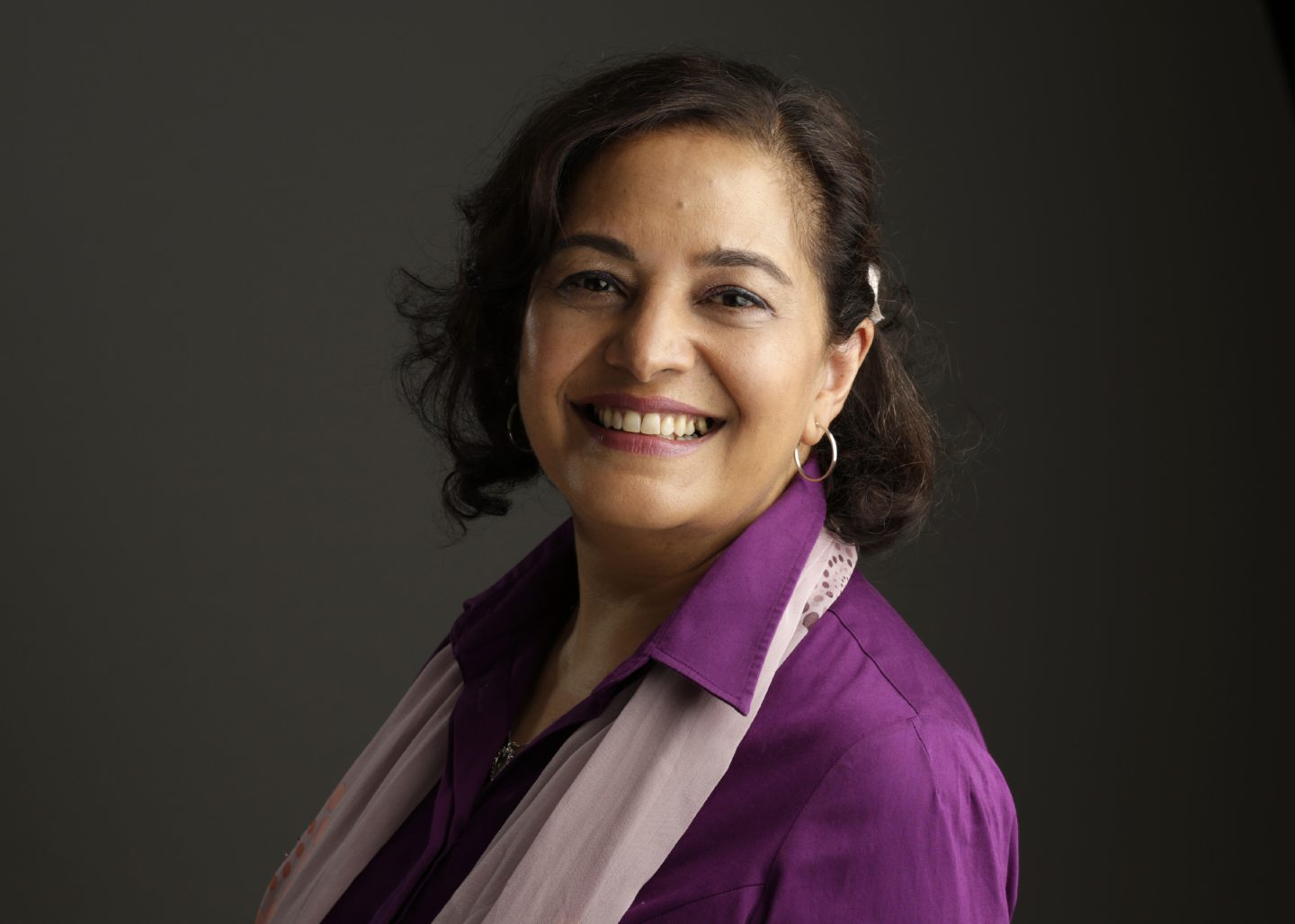
She might have only been three and a half but Lubna Kerr vividly remembers stepping off the plane from Pakistan to her family’s new home in Scotland.
It was December 1965 and Lubna, her parents and her baby brother were not prepared for what was about to hit them.
The bitterly cold weather was a shock but some of the racism faced by the family was harder to shelter from.
“I remember the cold hitting us – we were all wearing sandals and we were crying,” said Kerr.
“My dad was an academic and was offered a scholarship to do a PhD in chemistry at Strathclyde University.
“When my parents landed here, they didn’t know what racism was, because they had never experienced it before. My mum said she thought these were people with bad manners.”
The family faced up to the challenges their new life threw at them and excelled.
Kerr’s dad, Ihsan, sadly died at just 45 – 14 years after moving to Scotland – but her mum, Mumtaz, later went to university and became a role model and pillar of her community in Glasgow.
Lubna also studied, becoming a pharmacist, and she too earned a PhD. She married a Scot, had three children, and then, a little over 10 years ago, decided she wanted more. So she trained to become an actor and then a stand-up comedian.
Now she has written a semi-autobiographical play, Tickbox, about her and her mum’s lives.
Kerr hopes it will encourage more people from diverse communities to attend the theatre, as well as bring her story to a wider audience.
She said: “I want to tell a story people can relate to. It’s a positive, upbeat story. It’s not a story about terrorism or forced marriages.
“Both my parents’ lives were a success. Mum was a really good role model and I’ve tried to be the same. I still do the day job but I also focus on acting, comedy and writing.”
Tickbox will be performed at Army@TheFringe as part of this year’s Edinburgh Festivals. The one-woman play will see Kerr play the roles of her younger self, her mum, and those they encountered on their journeys.
“When my dad died, it was about her coming into her own,” she said. “I was at Strathclyde studying pharmacy and had a lot of Arabic friends, so I decided to attend evening classes to learn the language, and my mum came with me.
“She loved it so much she went on to Glasgow University to do religious studies, philosophy and Arabic.
“After that, she set up classes within the local Pakistani community to educate women.
“The Quran is in Arabic, and so she set up free classes for these women, reading and translating pieces and making it relevant to their lives.
“She did four classes a week in different houses, then moved it into halls, and she did that for 30 or 40 years.”
Meanwhile, Kerr, her brother, and their little sister – a new addition to the family after they moved to Scotland – tried to integrate into their surroundings.
“I was sent to language therapy classes in primary one because they thought I had a stutter, but I was trying to learn English while speaking Urdu at home, so obviously I was going to be behind in my skills,” she said.
“We were also living in Govan, so really I was trying to learn three languages!
“My parents sent me to Brownies because they were keen for me to integrate.
“I was only eight and thought I was going to meet my brown sisters. I remember Brown Owl chatting to me about dinner and she said she could smell the curry off of me, and so to this day I buy the most expensive perfume.
“It would have been easy to get a chip on the shoulder but I didn’t want to be like that. Both my mum and I had really positive attitudes.”
While Tickbox focuses on Kerr and her mum, her dad’s story is also important. The family had been middle-class in Pakistan but when they moved to Govan Ihsan discovered his funding covered his studies only, and he was forced to work two jobs to feed his wife and three children.
“He worked two jobs at night – one in a factory. He was a professor in Pakistan, and in eastern countries there is a real culture of respect for teachers, and then he came here and was being insulted. The lack of respect really affected him.”
Kerr said the issue of racism had improved over the years. “It was casual racism, based on ignorance but there’s been integration both ways since then.
“So when there is racism now, it’s deliberate. If my father came over now, he would find it much easier.”
Two life-changing events happened to Lubna in the past decade – she suffered a heart attack and she became single again. It made her re-evaluate what she wanted from life.
“I used to love acting and my ex-husband was supportive. He said I should go to am-dram, but I didn’t feel I had the time.
“When you’re a wife, sister, mother, daughter, friend and volunteer, you forget who you are. But in 2010 my children were grown up and I had time, so I went to a community drama group and loved it.
“From there, I went to Strathclyde University and did a lifelong learning course and began attending any workshops going.
“The first short film I appeared in was picked for the Cannes Film Festival, and I attended.
“When my mum died in 2013 I needed something to cope with the grieving process. I’d been going to The Stand comedy club with my ex-husband for years, and my father used to love watching The Two Ronnies, Dave Allen, Morecambe and Wise – it was in my blood. So I signed up to a comedy weekend workshop taking place at the Fringe.
“What I didn’t know was I had to perform a stand-up routine in front of a crowd at the end of it.”
It was a sink-or-swim moment for Kerr, and she kept afloat. Since then she has gone from strength to strength, touring her stand-up show and appearing in TV comedies like Two Doors Down and Scot Squad.
She also played Meena in the first Still Game live show at the SSE Hydro in 2014. “I loved it, performing to 12,000 people every night for 21 shows. It was great to be part of Still Game.”
Now, she wants to take her own play to as many people as possible.
“After this, I want to tour it in Scotland and then England. The sky’s the limit. I want the audience to be mixed – I want the Pakistani community to be comfortable sitting next to their Caucasian neighbours – everybody laughing, taking in the story. I want there to be more integration.
“There are so many things I want to achieve. I might not achieve them all, but I can but try.”
Tickbox, Army@TheFringe, Hepburn House Reserve Centre (venue 358), August 17-22

Enjoy the convenience of having The Sunday Post delivered as a digital ePaper straight to your smartphone, tablet or computer.
Subscribe for only £5.49 a month and enjoy all the benefits of the printed paper as a digital replica.
Subscribe © SYSTEM
© SYSTEM © SYSTEM
© SYSTEM © David Ho & Sandie Knudsen
© David Ho & Sandie Knudsen